As a homeowner, one of your top priorities is ensuring the safety of your property and loved ones. Luckily, installing a home security system is a practical and effective way to deter potential intruders and provide peace of mind.
Home security is essential to keeping your family safe. Investing in a smart home security system can bring peace of mind with features like proactive real-time alerts, remote monitoring & control, energy management, and integration with other smart devices. Consider your specific needs when choosing a system for the best results.
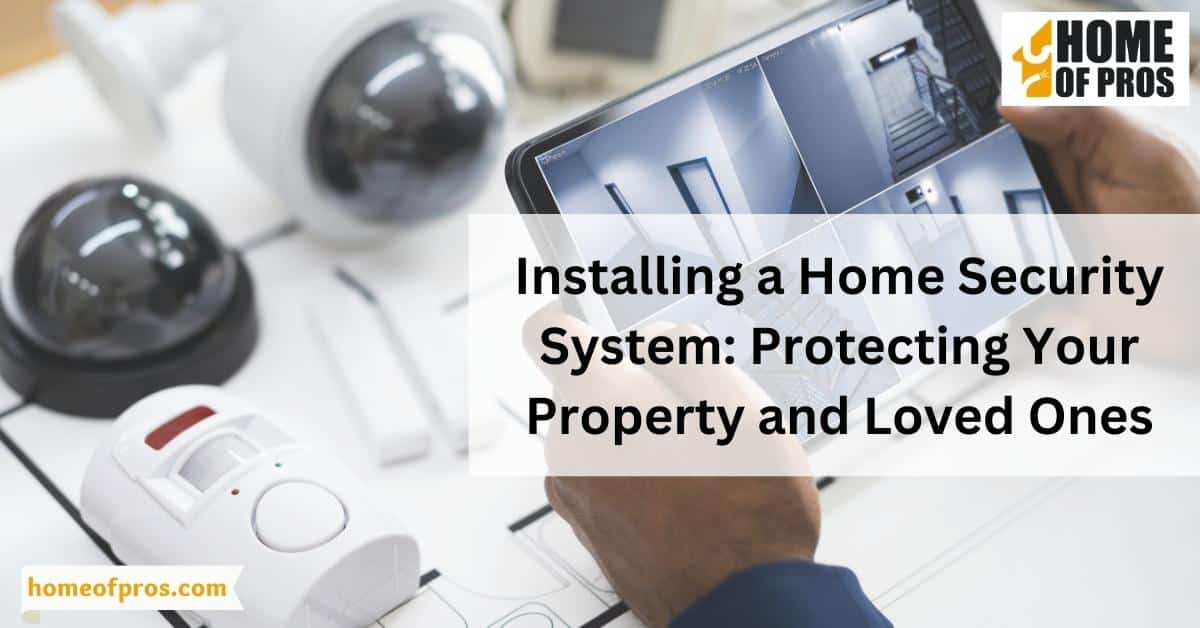
Types of Home Security Systems
Your home is your sanctuary, a place where you should feel safe and secure. Unfortunately, in today’s world, it’s essential to take proactive steps to enhance your home security.
Monitored Home Security Systems
Monitored security systems are a popular choice for homeowners. These systems are monitored 24/7 by a professional security company. If the system detects a problem, like a break-in or fire, the company will contact emergency services on your behalf.
Pros: High level of security, professional monitoring, quick response to emergencies.
Cons: Can be expensive, requires a contract, and may have false alarms.
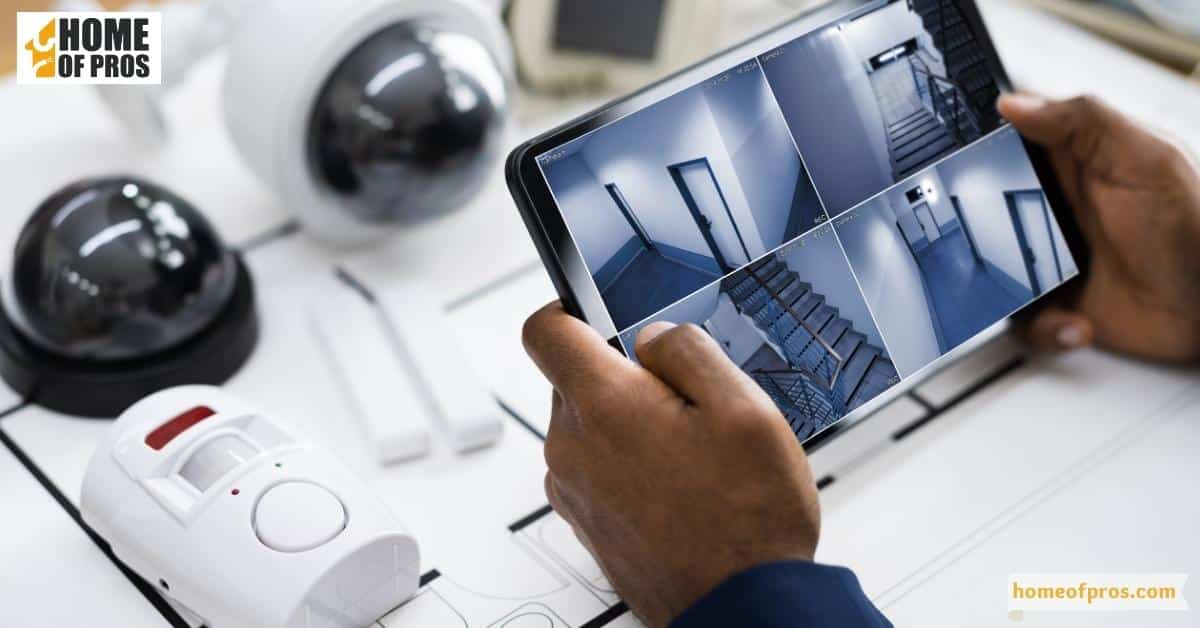
Unmonitored Home Security Systems
These systems work similarly to monitored systems, but there’s no professional monitoring service. Instead, if the alarm is triggered, it’ll make a loud noise to deter intruders and notify you (via a mobile notification) so you can call the authorities if necessary.
Pros: Lower cost, no contracts, control over when to call authorities.
Cons: You’re responsible for responding to alerts, with no professional backup.
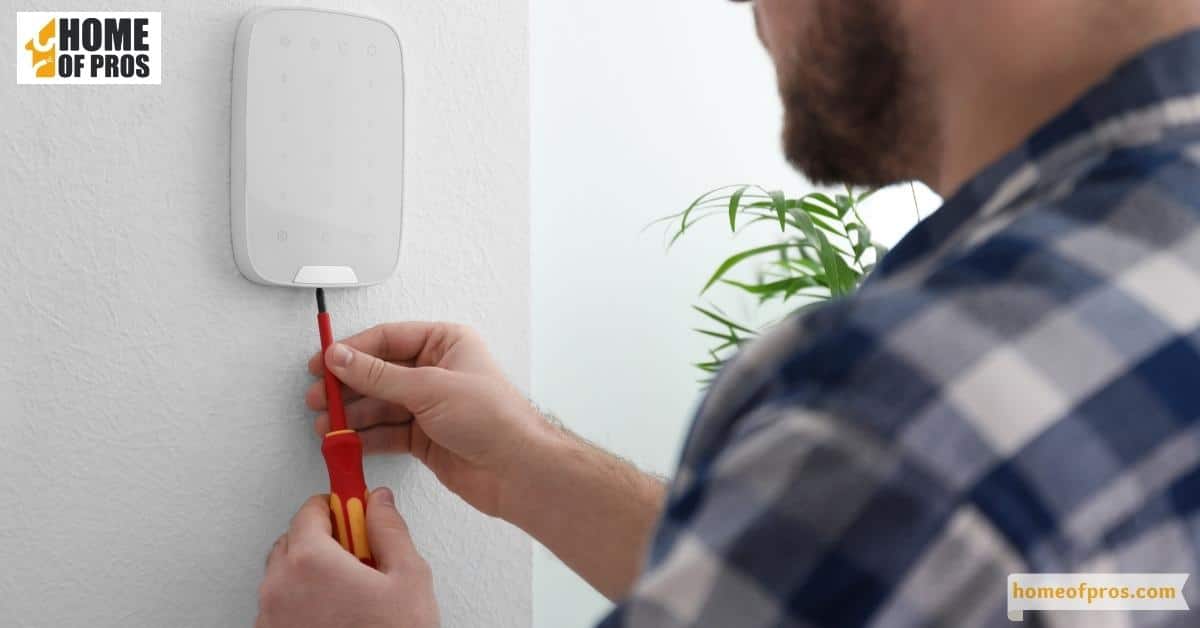
Wireless Home Security Systems
Wireless security systems are easy to install and flexible. They use wireless technology to connect sensors around your home. When a sensor is triggered, it communicates with the main control panel to sound the alarm.
Pros: Easy installation, flexibility in sensor placement, no need for landlines.
Cons: Can be interfered with, batteries need regular replacement.
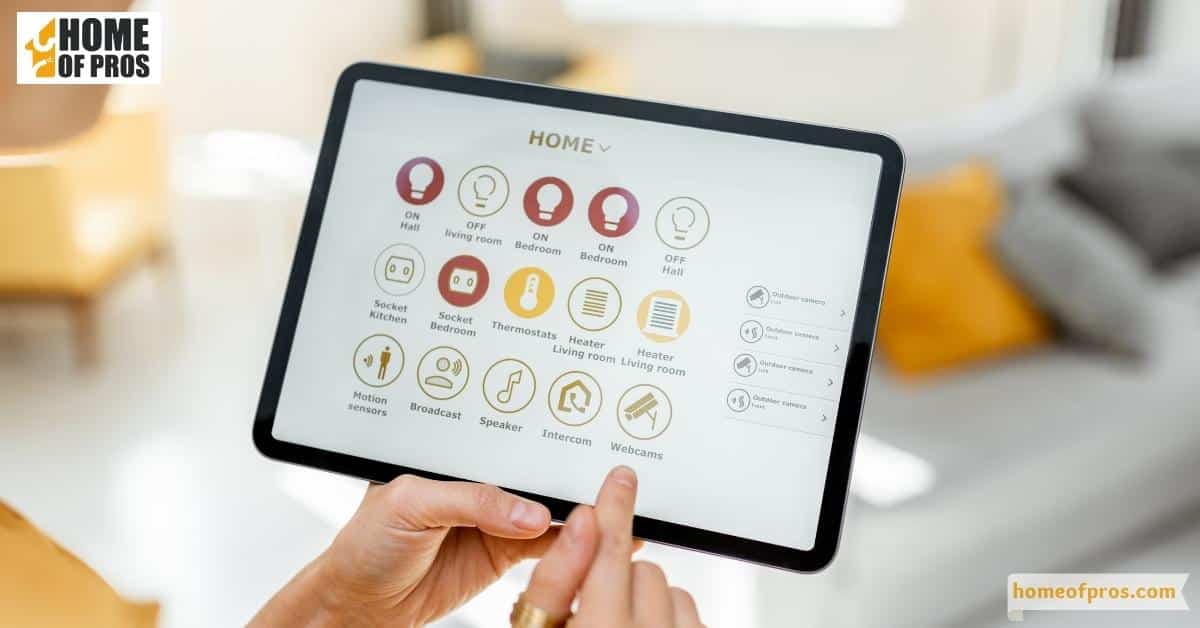
DIY Home Security Systems
For those who prefer a hands-on approach, DIY home security systems offer the opportunity to customize your system. These systems typically come as kits that you can install and monitor yourself.
Pros: Customizable, no installation fees, sense of personal control.
Cons: Requires technical know-how, you’re responsible for monitoring and maintenance.
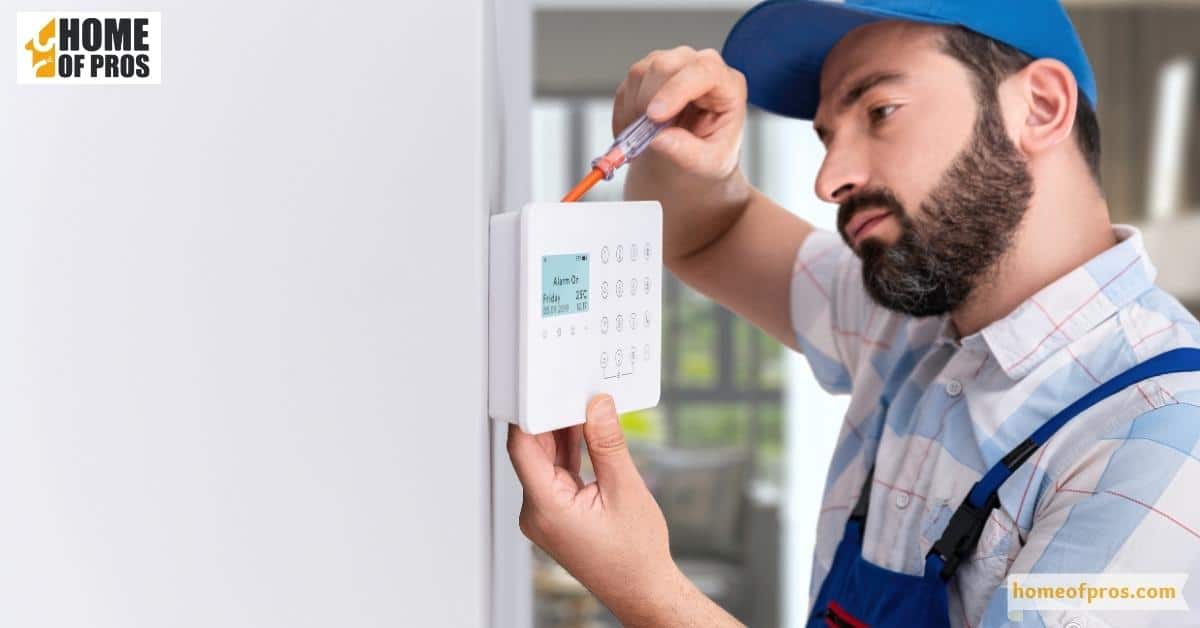
Benefits of Smart Home Security Systems
Smart home security systems are rapidly becoming a must-have in many households and for good reason. They offer a host of benefits that go beyond just protecting your property.
Let’s delve into some of these advantages to help you understand why investing in a smart home security system could be one of the best decisions you make for your home and family.
Proactive Real-Time Alerts
One of the key benefits of smart home security systems is their ability to provide real-time alerts. Whether it’s a potential intruder, a sudden rise in temperature indicating a fire, or a gas leak, your system can alert you immediately, allowing you to take quick action.
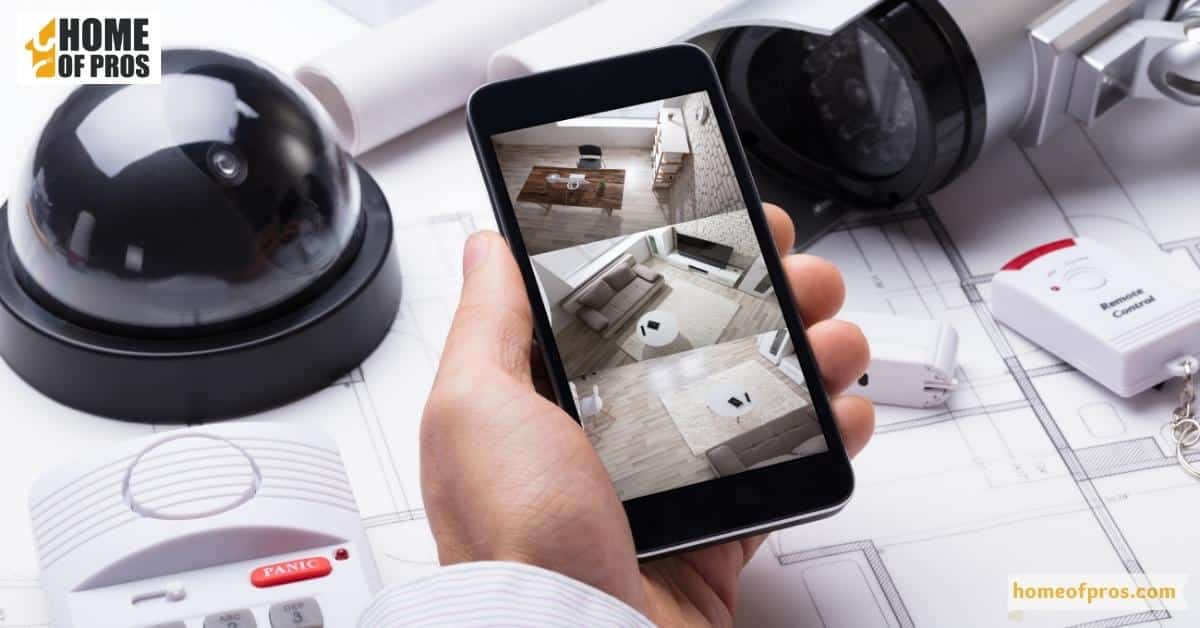
Remote Monitoring & Control
With a smart home security system, you can monitor your home from anywhere using your smartphone or other devices. This means you can check on your property while you’re at work, on vacation, or even just upstairs in bed.
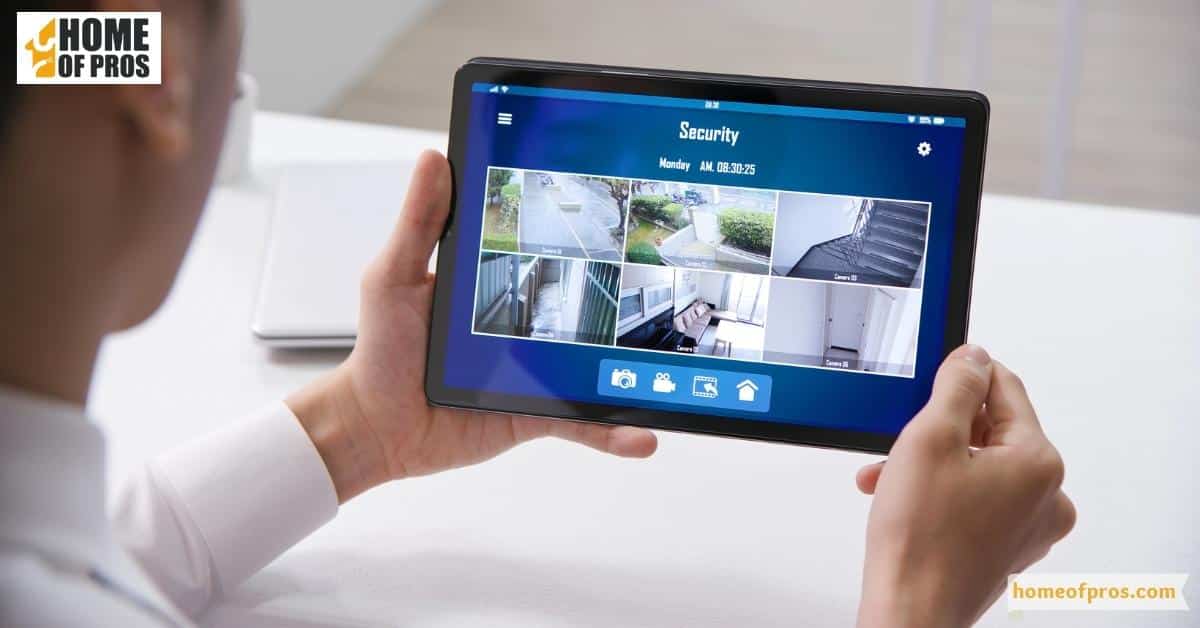
Enhanced Security with Video Surveillance
Many smart security systems come with video surveillance features. This allows you to see what’s happening in and around your home in real time. Plus, recorded footage can provide valuable evidence in case of an incident.
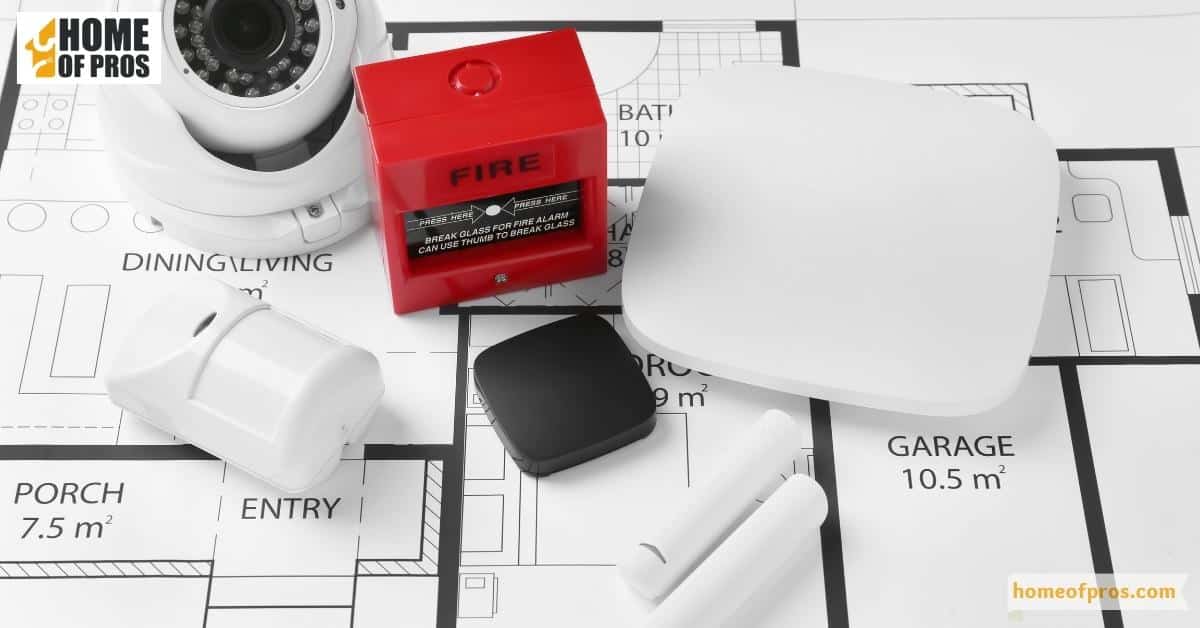
Automation and Integration
Smart home security systems can often be integrated with other smart home devices. This means you can control your lights, thermostats, and other connected devices through your security system, adding an extra layer of convenience to your life.
Energy Management
Some smart security systems offer energy management features, such as smart thermostats and smart lights, which can help you save on energy costs over time.
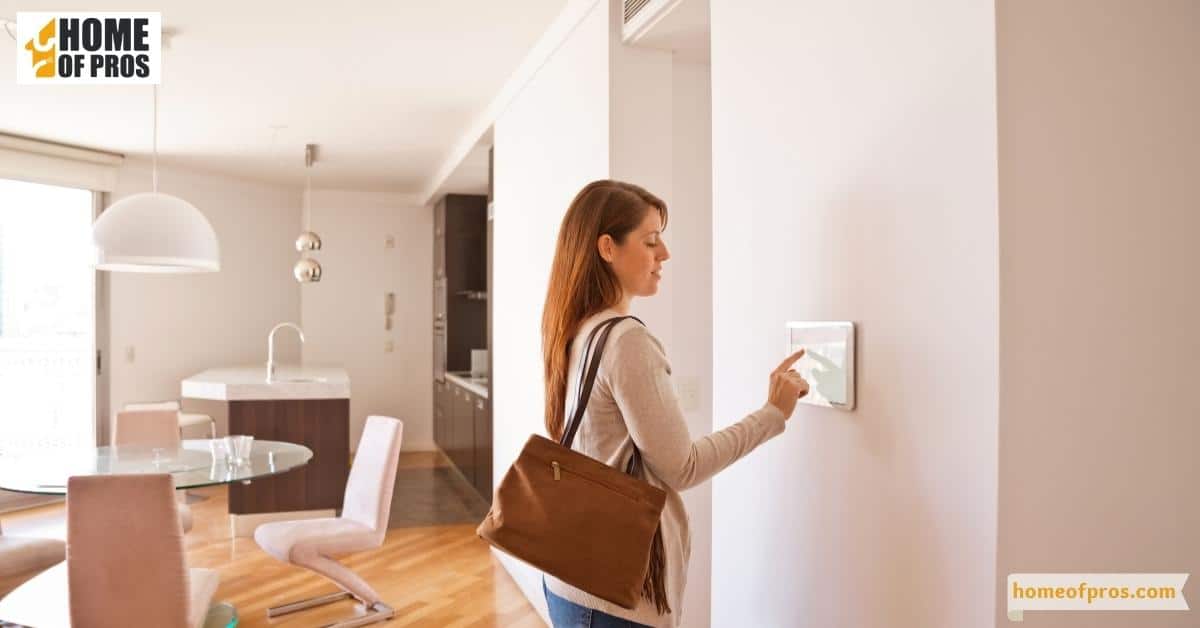
Peace of Mind
Perhaps the most significant benefit of a smart home security system is the peace of mind it provides. Knowing that your home is protected 24/7 and that you can monitor it from anywhere, gives you a sense of security that’s priceless.

What to Consider When Choosing a Security System
Choosing the right home security system is crucial for ensuring the safety of your property and loved ones. Here are some key factors you should consider:
- Your Specific Needs: Determine what you want to protect (e.g., doors, windows, outdoor area), and choose a system that caters to those needs.
- Budget: Home security systems can range from affordable to high-end. Determine your budget and choose a system that offers the best value for your money.
- Installation: Some systems require professional installation, while others are DIY. Choose a system that suits your comfort level with technology and installation tasks.
- Monitoring: Decide whether you want a professionally monitored system (which contacts emergency services for you) or a self-monitored one (where you receive alerts and decide on the action to take).
- Smart Home Compatibility: If you have or plan to have other smart devices in your home, consider a security system that can integrate with them for added convenience and control.
- Customer Reviews: Look at online reviews to get a sense of the reliability and customer satisfaction associated with each system.
- Contract Terms: Some systems require long-term contracts. Be sure to read the fine print and understand the terms before committing.
- Extra Features: Depending on your needs, you might want extra features like security cameras, smoke detectors, or flood sensors. Make sure the system you choose supports these.
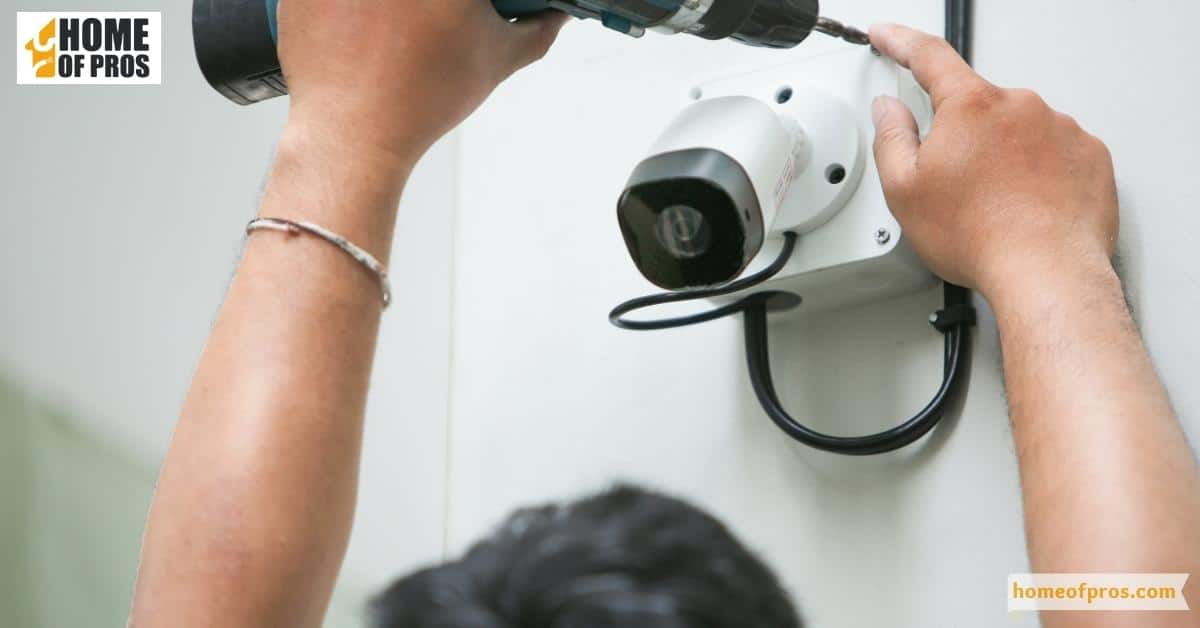
Connectivity and Remote Monitoring
In today’s digital age, the ability to connect with your home security system remotely is not just an added bonus; it’s a necessity. Here’s how connectivity and remote monitoring play a crucial role in home security systems and why they’re essential for protecting your property and loved ones.
Connectivity in Home Security Systems
Connectivity refers to how your security system communicates with a network, allowing it to send and receive information. Modern security systems primarily use wireless connectivity, leveraging Wi-Fi or cellular signals. This type of connectivity offers several benefits:
- Easy Installation: Wireless systems are generally easier to install as they do not require hardwiring.
- Flexibility: Since there are no wires, you can easily move components around as needed.
- Integration: Wireless systems can seamlessly integrate with other smart devices in your home, providing a cohesive security solution.
While Wi-Fi connectivity depends on your internet connection, cellular connectivity works even when your internet doesn’t, making it a more reliable choice, especially during power outages.
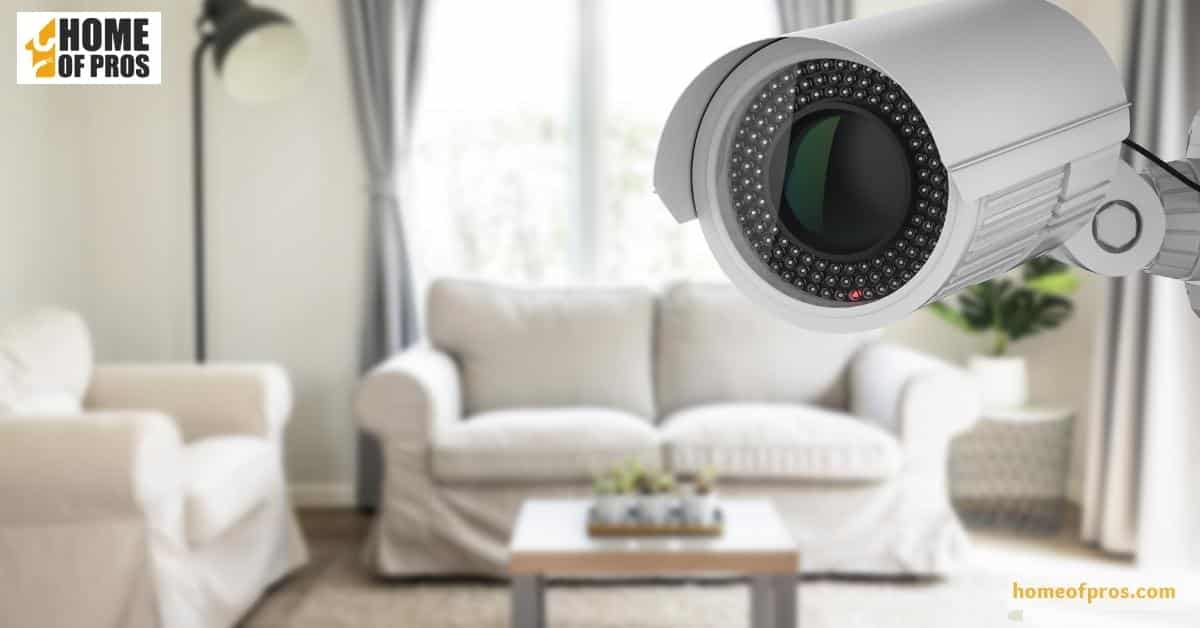
Remote Monitoring in Home Security Systems
Remote monitoring allows you to check your home security status from anywhere, anytime, using your smartphone or other web-enabled devices. Here’s why it’s critical:
- Real-Time Updates: With remote monitoring, you get instant alerts if your system detects any unusual activity.
- Direct Control: You can arm or disarm your security system remotely, control connected devices, and even speak directly to visitors through two-way audio.
- Visual Verification: Many systems come with cameras, allowing you to visually check on your home and loved ones.
- Peace of Mind: Knowing you can monitor your home, regardless of where you are, provides invaluable peace of mind.
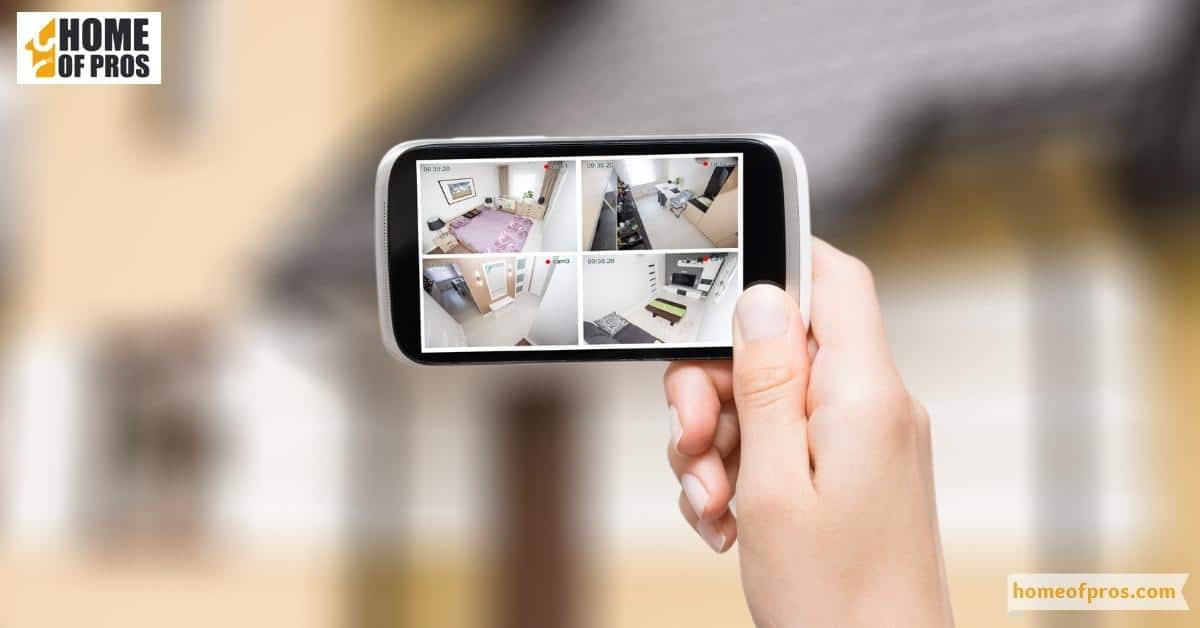
Local Alarm Monitoring Services
Local alarm monitoring services can play a pivotal role in enhancing the safety of your home. These services provide around-the-clock surveillance for your property, responding swiftly to any alerts or alarms triggered by your home security system.
Local alarm monitoring services are professional security companies that monitor your home security system 24/7. If your alarm system detects an intrusion, fire, or other emergency, the monitoring service receives this alert and takes appropriate action, which typically involves contacting the relevant emergency services in your area.
One of the significant advantages of local alarm monitoring services is their familiarity with the area. They understand local crime trends, have relationships with local law enforcement, and know the quickest ways to dispatch help when needed. This localized knowledge can result in faster response times during emergencies.

Tips for Protecting Your Home and Family
Installing a home security system is a crucial step toward protecting your property and loved ones. Here are some additional tips to enhance your home’s security:
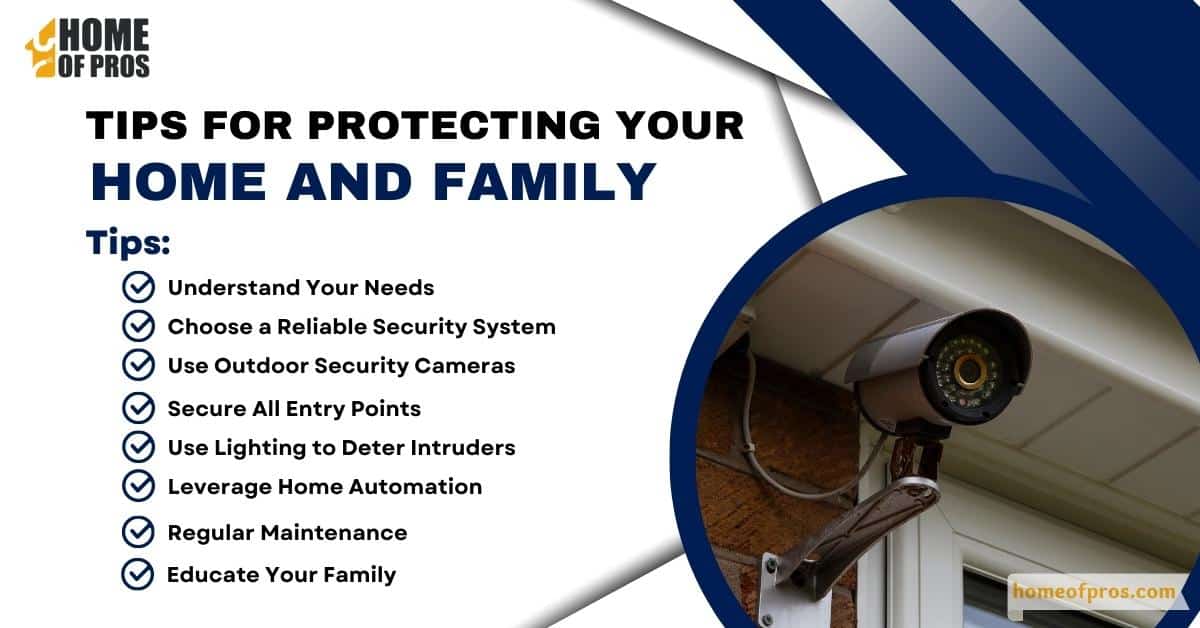
- Understand Your Needs: Assess your home and identify potential vulnerabilities. This will help you choose a security system that addresses your specific needs.
- Choose a Reliable Security System: Look for a system with reliable features like real-time alerts, remote monitoring, and integration capabilities. Ensure it uses secure encryption to protect your data.
- Use Outdoor Security Cameras: Install cameras at key points outside your home, such as entrances and garage areas. This can deter potential intruders and provide valuable evidence in case of an incident.
- Secure All Entry Points: Ensure all doors and windows are equipped with sensors. Remember to secure less obvious points of entry like basement windows or pet doors.
- Use Lighting to Deter Intruders: Well-lit exteriors can deter potential burglars. Consider using motion sensor lights for added security.
- Leverage Home Automation: Connect your security system with other smart home devices for enhanced protection. For example, smart locks can allow you to control access to your home remotely.
- Regular Maintenance: Regularly check and maintain your security system to ensure it’s working optimally. Replace batteries and update software as needed.
- Educate Your Family: Teach your family members how to use the security system and what to do in case of an emergency. This includes knowing how to arm and disarm the system, and who to call if there’s a problem.
In conclusion
Installing a home security system is a practical and effective way to protect your property and loved ones. With advancements in technology, home security systems have become more accessible and affordable.
The peace of mind that comes with knowing your home is secure is priceless. Additionally, it can potentially save you money on insurance premiums and reduce the likelihood of a break-in or vandalism.
It’s important to do your research and find a system that fits your needs and budget.












